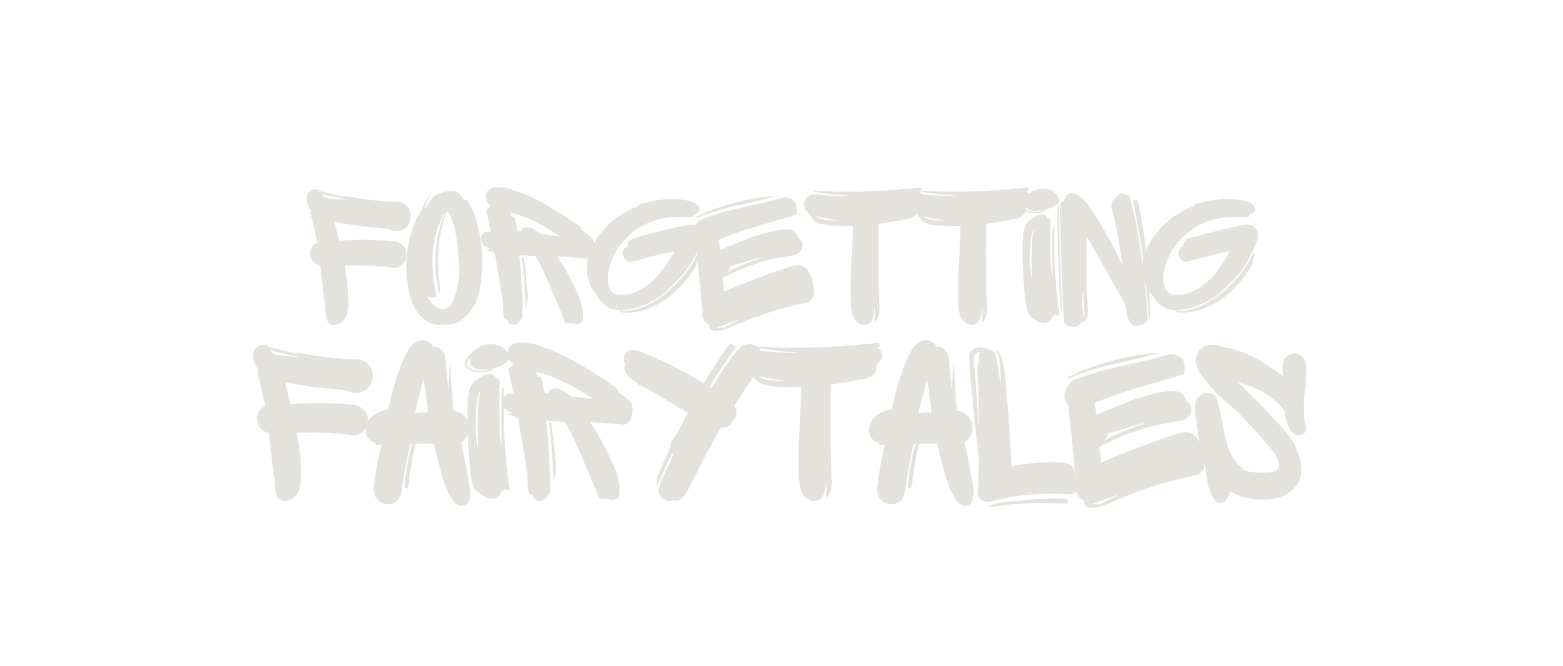Are you wondering where your abandonment issues come from? What is the root? What is the cause? In this section of the Fear of Abandonment Series we’re going to look at exactly that – to get clear on your abandonment core beliefs.
“Why?”, you might ask. “Isn’t this about moving forward?” Well yes, yes it is. But in order to move forward you have to first go back.
We want to identify where your abandonment issues come from so that we can not only go on to better recognise what triggers you and why, but also how to stop it.
Where Your Abandonment Issues Come From
Like all subconscious thoughts and core beliefs, your abandonment issues closely link back to childhood and adolescence. Up until that point, you don’t have any of your own beliefs – you’re taking everything in to form your views on others, yourself and the world. That’s why what happens when you grow up plays such a huge part.
Now of course you can challenge these beliefs, they can also gradually evolve over time – for better or for worse. That’s why, if at a later stage of your life you experience something like a trauma – you can still develop abandonment issues from that.
For now however, I want us to first focus on what else may tie into it – because if you’re aware that you have abandonment issues, you’re probably aware of one or two particular events, but you may not be fully aware of the full degree of your fear of abandonment, and everything else which plays its part.
Before You Start
Before we start this exercise, I want you to really open your mind, be willing to dig into your past. Some of the things you’re going to think about are going to be painful, and you may have put them away in a box, refusing to think about them.
There may also be things of significance that you may not have even realised were significant up until now, so it’s really important that you go into this exercise with openness, honesty and an inquisitive mind.
If you’re struggling, come back to this – do it again more than once. There are 5 parts so you could also bookmark and do 1 area a day. Whether this is done over 5 days or 5 weeks, it doesn’t matter – what matters is that you’re getting through it. Also remember that you can work through this with a therapist or coach for a little extra support.
This exercise was developed by Abandonment Specialist, Michelle Sleen. I couldn’t recommend her work and teachings enough.
Where Have Your Abandonment Issues Come From?
So it’s time to find out where your abaondment issues come from. How it works? Well, it’s simple. We have five categories like mentioned. Each category has 10 statements that you rank on the following scale.
1: Completely untrue of me.
2: Mostly untrue of me.
3: Slightly more true than untrue.
4: Moderately true of me.
5: Mostly true of me.
6: Describes me perfectly.
You will therefore end up with a final total score in each category, of something between 10 and 60. Each score is then broken down on the following scale…
10-19: This is very low. This core belief probably doesn’t apply to you.
20 – 29: This fairly low. This core belief may apply only occasionally.
30 – 39: This is moderate. This core belief will be causing an issue in your life.
40- 49: This is high. This core belief will be prominent in your life.
50 -60: This is very high. This core belief will hold a lot of power in your life.
The final score is going to indicate how prominent that particular core belief is to you in your life. However, each category has the 10 list of statements to consider as well. You could have a low score in that category but a statement that you rated a 5 or 6.
When you find this, I want you to write down this core belief in particular. This means, overall, the category isn’t too prominent, but that one particular element / belief – it is. This is important to determine.
By the end of it you will therefore be left with: a score for each category and the power that it has in your life, plus the particular statements / beliefs within each category that ring the most true to you. Write this all down because this is what we’re then going to work on and push through.
Sounds good? Okay then, let’s get started.

Category 1: Abandonment Core Beliefs
Let’s start with Abandonment itself. Please rate the following statements on that scale of 1-6.
- I worry a lot that the people I love will die or leave me.
- In the end I feel like I will be alone.
- I cling to people because I am afraid they will leave me.
- I do not have a stable base of support.
- I keep falling in love with people who cannot be with me in a committed way.
- People have always come and gone in my life.
- I get desperate when someone I love pulls away.
- I get so obsessed with the idea that my lovers will leave me that I drive them away.
- The people closest to me are unpredictable. One minute they are there for me and the next minute they are gone.
- I need other people too much.
As you go through, you may find yourself thinking – we’ll that’s not quite true, but this certainly is. Or, that’s not 100% accurate – I’ll rate it this level but also write down this belief that 100% defines me and how I feel.
These statements are just the starting point. Use it as an opportunity to brainstorm and also come up with your own – if needed. Remember, take your time, there’s no rush.
Category 2: Mistrust and Abuse Core Belief
The mistrust and abuse core belief is one of the four common co-conspiritors. If you grew up in an environment in which you didn’t trust the people or person closest to you, you didn’t feel safe and / or were physically, verbally, emotionally or sexually abused – then you probably have a mistrust and abuse core belief.
- I expect people to hurt me or use me.
- I am afraid to let people get close to me because I am afraid of them hurting me.
- Throughout my life, people closest to me have abused me.
- I believe it is only a matter of time before the people I love, will betray me.
- I have to protect myself… and stay on my guard.
- If I am not careful, people will take advantage of me.
- Admittedly, I set tests for people to see if they are really on my side.
- I try to hurt people before they hurt me… It’s my way of protecting myself.
- I’m still angry about what people have done to me.
- I have been physically, verbally or sexually abused by people I should have been able to trust.
Again, add up the points from each statement to get your final score.
If you scored low on this core belief but you believe that this core belief is relevant for you, it may be that you’re blocking things out or downplaying things, like we mentioned above.
Reasons Behind Mistrust
This topic can touch on some really difficult feelings and experiences so go easy. It’s okay. Work through it in your own time, or with someone else and keep in mind why you’re doing it. This is going to BREAK these core beliefs and replace them with new empowering ones… Ones which make you feel better, ones which take away that pain. So don’t give up.
Think about times when your trust was broken or you felt hurt / betrayed. Think of the times and think of how they have shaped you. Has it been lots of little things accumulated or one major experience? It could also be both.
Ask yourself – what childhood situations could have contributed to your feelings? Write down all things, big and small. For example:
- You may have felt like your parents kept information from you, that they should have shared with you.
- There may have been secrets amongst family members.
- Perhaps there was a lack of open communication in your family.
- Maybe there was an intangible feeling of distrust.
- You were criticised or ridiculed when you were most vulnerable.
- You were bullied or humiliated by your peers.
You’re pressing further to uncover any of your own statements which you would believe to a strength of 5 or 6.

Category 3: Emotional Deprivation Core Belief
We’re half-way through the exercise now. Slowly but surely you’re beginning to learn where your abandonment issues come from. So what’s the deal with emotional deprivation? Well, emotional deprivation is actually another partner in crime with the abandonment core belief.
If you grew up in an environment when you didn’t receive emotional support, attention, affection, guidance and understanding, then emotional deprivation is probably one of your core beliefs.
Here’s the statements to rate in this section:
- I need more love than I get.
- I am often attracted to cold partners who can’t meet my needs.
- No-one really understands me.
- I feel disconnected, even from the people who are closest to me.
- I have not had one special person I love, who wants to share himself or herself with me and cares deeply about what happens to me.
- No-one is there to give me warmth, holding and affection.
- I do not have someone who really listens and is tuned in to my true needs and feelings.
- It is hard for me to let people guide or protect me, even though it is what I want inside.
- It is hard for me to let people love me.
- I am lonely a lot of the time.
Again, add up the points from each statement to get your final score. To press you a little further in this area, I want you to ask yourself once more – what childhood situations could have contributed to your feelings?
Reasons Behind Emotional Deprivation
Let me give you a few examples again:
- Perhaps you felt less love than a sibling (s).
- Your parents were so strong that you felt left out.
- You felt different to the rest of your family. “Am I adopted?!”
- You felt misunderstood or unloved.
- Perhaps you felt different from your peers – like no-one really got you.
- You might have lacked the genuine friend connections.
- You were made to feel like the needs and feelings of others were more important than yours.
- Your feelings or experiences weren’t valued or validated.
See, you can be raised by loving parents but still not feel like you get the love you need, or have a person in your life who is tuned into your feelings or understands you.
It’s a very complex thing. That’s why you have to press within you to gain a true understanding – to help things start to make sense.
Category 4: Defectiveness Core Belief
Category 4 now, you’re nearly there and are doing so so well. In this section, we need to look at the defectiveness core belief as this often also rides shotgun with the abandonment core belief.
If you believe you are bad, unworthy, defective and if someone saw you for who you really are, he / she would find you unloveable and reject you – then it’s likely that you have a defectiveness core belief.
Rate the following statements for me again now:
- No man or woman could love me if he / she properly knew me.
- I am inherently flawed and defective. In my mind, I am unworthy of love.
- I have secrets that I do not want to share, even with the people closest to me.
- It was my fault that my parents couldn’t love me.
- I hide the real me, the real me is unacceptable. The self I show is a false self.
- I’m often drawn to people – parents, friends and lovers – who are critical and reject me.
- I am often critical and rejecting of others myself… Especially those who seem to love me.
- I de-value my positive qualities – put myself down.
- I live with a great deal of shame about myself.
- One of my greatest fears is that my faults will be exposed.
Reasons Behind Defectiveness
Here are some additional situations that may resonate with you. These aren’t to be scored on, but are to be considered so that you can thing of any relating core belief statements that you want to write down. So perhaps:
- There was a physical characteristic that caused embarrassment or was the target of ridicule by others. Or, there was something that made you feel self-conscious and you feared that others would discover it.
- You felt like something was wrong with you because of the way that certain people treated you.
- You may have struggled with your gender identity or sexual orientation.
- Perhaps you felt less than, because you are an adopted child in a family with biological children. Or because you are a different race or ethnicity than your adopted parents. You could never shake the feeling that something must be wrong with you if your biological parents put you up for adoption.
- It could be that you have had an interest that varied from the mainstream and it made you feel different.
- Perhaps you were afflicted with a childhood illness or disorder and it made you feel like something was wrong with you.
Any of these experiences, or similar, can make you feel like you have a defectiveness core belief. And they all tie in together. I also want to raise the point here, that some core beliefs can trigger other core beliefs. There’s often a cross-over.

Cross-Over of Beliefs
For example – trauma. If you were abused, it won’t just be some level of mistrust that you will be feeling, it will also be the defectiveness beliefs as you ask yourself, “why me?”
With the defectiveness core belief, rationally, you may also know that you’re not a defective person – particularly if you’ve been working on your confidence over time. However, you can still have the feelings of being defective when you’re in an emotionally vulnerable state or aren’t thinking rationally.
Because of this, it’s still important to address it as one of your core beliefs, to become aware that there are risks and vulnerability around it and be able to work through it for good.
Category 5: Failure Core Beliefs
Last but not least then, we have the failure core beliefs. And this may be seemingly unrelated – especially as it’s not so much to do with relationships. However, if you feel like a failure, you can feel unworthy, insignificant, like you don’t quite measure up. You don’t think you’re “enough” which is why it’s significant here.
The statements to rate on this one:
- I feel like I am less competent than other people in areas of achievement.
- I feel like I’m a failure when it comes to achievement.
- Most people my age are more successful in their work than I am.
- I was a failure as a student.
- I’m not as intelligent as most of the people I associate with.
- I feel humiliated by my failures in the work sphere… I’ve let myself down.
- I feel embarrassed around other people, because I just don’t measure up in terms of my accomplishments.
- To be honest, I often think that people believe I am more competent than I really am.
- I feel that I do not have any special talents that really count in life.
- I am working below my full potential.
Again, use the same scale. I also want you to think about your past relationships and any “failures” you may have seen with them. Failure to make a relationship work, failure to “make” a person stay.
These things are all based on opinions of course, it doesn’t mean they’re necessarily true, strictly failures or that it was all your fault or in any way avoidable. But this is all just about understanding what you believe… the facts and challenges we’ll look at afterwards.
Where Your Abandonment Issues Come From
So you’ve done it! You’ve got to the end of. I know it can be emotionally challenging, but we covered some really great stuff there – not just the specific beliefs around abaondoment, but the three key areas which tie into them. You should feel really proud.
By this point, you should now have a far greater understanding of where your abaondment issues have come from. From here, take a break. Think, reflect, You may also think of some other key things that tie into this.
Remember, like all activities – you don’t have to get everything out in one go, or have everything “perfect”. There is no right and wrong. Your answers may change, your thoughts and feelings may change. This is just the starting point.
How To Review Your Statements & Scores
Look at the statements for which you scored 3,4, 5 and 6 and ask yourself:
- Do you have memories of specific experiences or events that go with these statements?
- Do you remember how you felt then? How do you feel now?
- Did the statement that resonated with you make you aware of any patterns in your life? Behavioural patterns? Relationship patterns?
- Did any of the results surprise you?
You can also clarify, tweak and reflect on the statements in which you highlighted – or the new ones in which you added.

What To Do From Here
Now you know the core beliefs that are significant to you and where your abandonment issues come from, we can start to understand how they get triggered, and how to work on removing them. For now however, know that this is a huge step.
See, when you can understand why you’re reacting the way that you are, you can begin to change your behavioural reaction cycle – the patterns of behaviour that are unhelpful.
Your core beliefs have characteristics that make them challenging, but not impossible, to overcome. They are unconditional – you experience them as deeply held truths about yourself, others and the environment.
They are resistant to change because they are engrained from childhood, and they are self perpetuated in that the triggers seem to confirm the core belief so that it reinforces your story.
This cycle is seemingly never ending, but you CAN put a stop to how you react to certain situations and you CAN build better relationships.
Already, just from this – you’ll start to be more reflective. Perhaps stop and think. Maybe you’re tired of acting the same way in certain situations or circumstances. Maybe you’re frustrated at your behaviour.
But change takes place in behaviour. Every situation, every challenge – it’s an opportunity for change. So in that respect – it’s exciting! Choose to see this as exciting. That’s all for this one.
Browse the Abandonment Series:
- The Signs Of Abandonment Issues
- Where Your Abandonment Issues Come From (just read)
- How You React To Your Fear of Abandonment
Hope this helps. Remember, if you need me – I’m here.
Love,
Ell_xx


